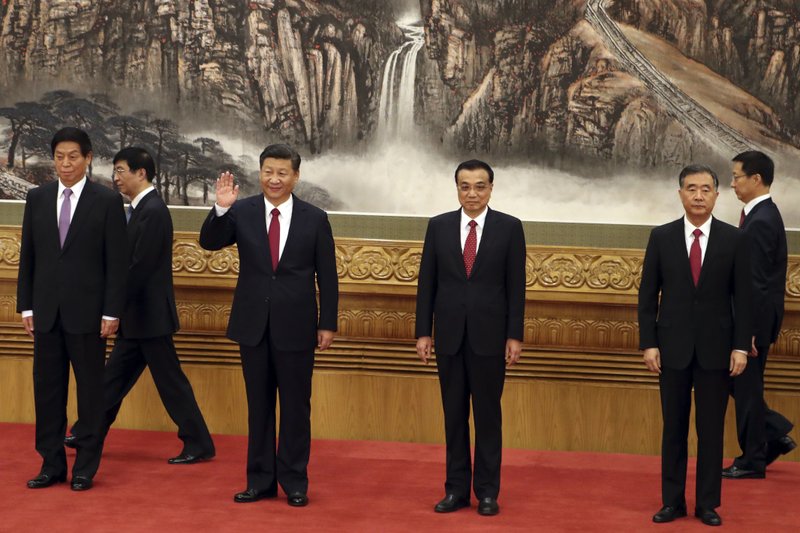BEIJING -- Analysts say the ruling Chinese Communist Party's move to enable President Xi Jinping to stay in power indefinitely will ensure some degree of political stability while also reviving the specter of a return to one-man rule.
In a sign of the leadership's sensitivities, Chinese censors moved quickly Monday to remove satirical online commentary about the development.
Some Chinese on social media represented their feelings about plans to lift term limits to allow Xi, who became president in 2013, to rule indefinitely with images of Winnie the Pooh hugging a jar of honey along with the quote, "Find the thing you love and stick with it."
The Disney bear's image has often been compared to Xi, prompting periodic blocks on the use of Pooh pictures online.
Other online commenters wrote, "Attention, the vehicle is reversing" -- an automated announcement used by Chinese delivery vehicles -- suggesting that China is returning to the era of former dictator Mao Zedong or even imperial rule.
A day after the party announced a proposed constitutional amendment ending term limits, Internet users found it difficult to signal approval or disapproval by changing their profiles. Key search topics such as "serve another term" were censored.
The country's rubber-stamp parliament, the National People's Congress, is seen as all but certain to pass the amendment when it meets for its annual session early next month. Under the 1982 constitution, the president is limited to two five-year terms in office, but Xi -- already China's most powerful leader since Mao -- appears to want additional terms to see his agenda of fighting corruption, eliminating poverty and transforming China into a modern leading nation by midcentury.
Or, some speculated, he may simply wish to retain near-absolute power for as long as possible.
"It is most likely that it will turn into a post of lifelong tenure," said Zhang Ming, a retired political scientist who formerly taught at Beijing's Renmin University.
A retired Beijing railroad worker, who gave only his surname, Liu, said he approved of Xi's performance over his first five years in office and voiced no objection to the lifting of term limits.
"As the leader, he has done pretty well in terms of reform and economic growth," said Liu, 67.
"In foreign policy, he also did a good job by taking tough positions in the face of provocations from the U.S."
Xi has made robust diplomacy and a muscular military posture in the South China Sea and elsewhere a hallmark of his rule, and more can be expected, experts said.
In terms of trade relations with the U.S., entrenched differences between the world's No. 1 and No. 2 economies will likely remain, said James Zimmerman, former chairman of the American Chamber of Commerce in China.
"This announcement on the one hand potentially means continuity, predictability, and stability. But, on the other hand, it also means more of the same; namely, stalled market reforms and limitations on market access," Zimmerman said.
Professor and political commentator Hu Xingdou said he doubted that Xi wants to be president for life, but there were concerns that China could "slide into a kind of fascism or personal dictatorship which will cause very serious consequences."
"Many consider this a lifetime tenure, but I think it will probably be extended to three or four terms. Maybe an unspoken agreement has been reached inside the Chinese Communist Party that one has to step down after three or four terms," Hu said.
Others pointed out that authoritarian rule without term limits often leads to abuses and severely complicates the succession process.
In the near term, "this move could actually increase stability, since there would presumably be less jockeying for power," said William Nee, an Amnesty International researcher on China.
"In the long run, however, this will probably further complicate the perennial problem that authoritarian states confront in finding a way to peacefully and orderly transfer power."
However long Xi wishes to hold on to office, he currently faces little opposition from within the party or mainstream society.
Xi already has a firm grip on power as head of the military and party general secretary, a position for which there are no term limits, and has eliminated all challenges to his leadership.
China holds no competitive elections for leadership posts, and the body responsible for reappointing Xi to a second five-year term and amending the constitution next month generally approves the party's pre-ordained decisions.
Information for this article was contributed by Gillian Wong and Wayne Zhang of The Associated Press.
A Section on 02/27/2018

